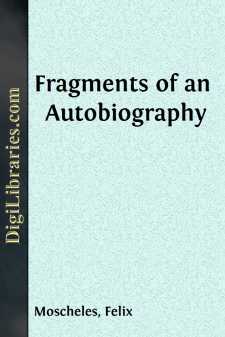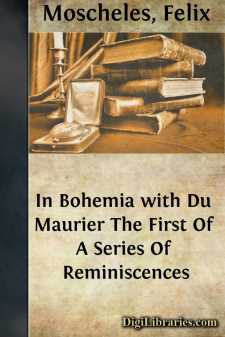Categories
- Antiques & Collectibles 13
- Architecture 36
- Art 48
- Bibles 22
- Biography & Autobiography 813
- Body, Mind & Spirit 142
- Business & Economics 28
- Children's Books 17
- Children's Fiction 14
- Computers 4
- Cooking 94
- Crafts & Hobbies 4
- Drama 346
- Education 46
- Family & Relationships 57
- Fiction 11829
- Games 19
- Gardening 17
- Health & Fitness 34
- History 1377
- House & Home 1
- Humor 147
- Juvenile Fiction 1873
- Juvenile Nonfiction 202
- Language Arts & Disciplines 88
- Law 16
- Literary Collections 686
- Literary Criticism 179
- Mathematics 13
- Medical 41
- Music 40
- Nature 179
- Non-Classifiable 1768
- Performing Arts 7
- Periodicals 1453
- Philosophy 64
- Photography 2
- Poetry 896
- Political Science 203
- Psychology 42
- Reference 154
- Religion 513
- Science 126
- Self-Help 84
- Social Science 81
- Sports & Recreation 34
- Study Aids 3
- Technology & Engineering 59
- Transportation 23
- Travel 463
- True Crime 29
Fragments of an Autobiography
by: Felix Moscheles
Description:
Excerpt
the terrors of a certain night when the wind was howling and the rain was beating down in torrents over the arid plains of the Lüneburger Haide; between them they had blown or blotted out the flickering lights of a heavy, lumbering travelling carriage such as one used to hire in the so-called good old times. The horses were plunging in the mire, the postillion was swearing, and a very small boy was howling. That boy was I, and the incident marks my first entrance into that conscious life which registers events in our memories. Not that I exactly remember what happened, and how we got out of the ankle-deep mud, and finally reached our destination; but I have no doubt that my father and the "brother-in-law," as the German postillion was addressed in those days, had to get the wheels out of the ruts as best they could without assistance, for there was no traveller, weary or otherwise, of the regulation first-chapter pattern, to come to the rescue.
No—I remember but little of it, but I have lived it all over again every time I have heard the dramatic strains of Schubert's Erl-king. Great artists, gifted with the power of song, have depicted the whole scene to me in thrilling accents; dear old Rubinstein, the friend, alas, I lost all too soon—grand old Rubinstein, the master whose magic touch swept the keyboard as the hurricane sweeps the plain—could conjure up visions of a misty past in my mind. "My father, my father," I could have cried, as the Erl-king of Pianists pursued the doomed child with his giant strides and unrelenting touch, alternately letting loose the elements to rage in maddening tumult, and drawing uncanny whispers from his weird instrument.
Whatever I may have been prompted to cry when under the spell of Rubinstein's art, I do not think I invoked my father's aid on that night upon the heath; it was more likely "My mother, my mother," I called, and she just protected me, and so, fortunately for me, it all ended happily, and: "In her arms the child was not dead," but cried itself to sleep, and was put back into the little hammock that was slung across from side to side of our old-fashioned vehicle, and that temporarily replaced my cradle in 3 Chester Place, Regent's Park, London, the house I was born in.
My father was on a concert tour in Germany, reaping laurels and golden harvests, such as were rarely heard of in those days. From his wife he never parted if he could help it, even for a short time, and by way of an encumbrance he had on this occasion taken, besides the necessary luggage, us children—I think there were three of us then—and a little dumb keyboard on which he used to exercise his fingers to keep them up to concert pitch when pianos were out of reach. I hadn't seen any of those little finger-trainers for years, when I came across one on Robert Browning's writing-table; he always kept it by his side, and I wondered whether he used it to stimulate the fingers that had to keep pace with the poet's ever-flowing thoughts....



